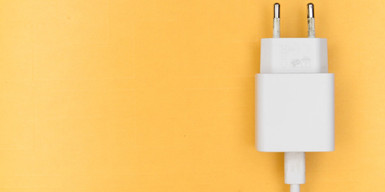5 Tips for Self Care
Posted by Tony Wilson. Tony is a workplace performance expert and creator of the Focus Planner on 11th May 2022

 Self-care is the flavour of the month in wellness circles and, ironically, has gained even more attention since working from home became a necessity during the Covid pandemic. But what does it mean? In this article, we’ll take a look at self-care strategies, how they work and give you some ideas for self-care when you feel like you don’t have time.
Self-care is the flavour of the month in wellness circles and, ironically, has gained even more attention since working from home became a necessity during the Covid pandemic. But what does it mean? In this article, we’ll take a look at self-care strategies, how they work and give you some ideas for self-care when you feel like you don’t have time.
Tips for self-care are everywhere – and they are getting a lot of attention in the media. You can’t scroll through social media without someone declaring they are taking a self-care day, and the weekend magazines promote self-care strategies and a call for self-care in the workplace. In fact, self-care has become a $450 billion dollar industry globally. People are taking control of their own health and wellbeing, with a never-ending supply of self-care strategies to help their physical, mental, and emotional wellness.
But what counts as self-care? And do we have to indulge in four hours at the day spa, or can we do smaller things to make a difference? And is self-care in the workplace possible when we finally head back to the office en-masse?
But with all the self-care propaganda, what are some tips for self-care that work, are affordable and don’t require you taking a long weekend in Singapore? Let’s dive in.
THE SELF-CARE MINDSET
Firstly, let’s think about the concept of self-care. One of the models that we use for performing at our best and being fulfilled is the Total Performance Model that you’ll find in our Focus Planner. It suggests that we need to balance three Critical Areas. These are the areas of Work, Home and Relationships, and the area of Self, which represents our own physical, mental and emotional wellness and our own personal goals.
Want to understand more about the three Critical Areas of Work, Home & Relationships and Self?
Take a look at this video:
For years (and we know we’re stereotyping here, but stick with us) men would put more emphasis on the Work area than the other two. And working mums are notorious for putting everything into both Work and Home, while usually neglecting the area of Self. And while Self is the area that we can neglect the longest, it is also the area that comes back to bite us the hardest if we neglect it too long. A mentor of mine once explained it like this: Balancing these three areas is like juggling three balls, but the balls are made of different materials. The Work ball is made of rubber – it will bound straight back up if you drop it. The Home and Relationships ball is made of foam - it will not bounce back up but you can get it back eventually. The Self ball, however, is made of glass. Once you drop that ball, you’re in all sorts of trouble.
The self-care movement aims to stop us from focussing on Work and Home at the cost of our own personal wellness. And if this seems selfish, then think about the applicable aeroplane emergency analogy: you have to fit your own oxygen mask before you can worry about someone else’s. But sure, you understand this, so what are some tips for self-care or some strategies?
HOW MUCH SELF-CARE IS ENOUGH?
So how much self-care is enough? Is doing something every single day overkill? Or what about a long weekend once a month? The answer is obviously going to be very individual. But there is one overriding theme that we should all stick to: small amounts regularly are better than a big gesture every now and then.
When we talk about self-care, we are talking about our health, wellbeing and managing stress. All of these aspects work in the same way as brushing your teeth:
If you brush your teeth for two and a half minutes every morning and every night, you will likely have very healthy teeth and gums. But, if you only brushed your teeth for 35 minutes on a Sunday night, those teeth are probably going to fall out even though you have spent the same time brushing over the week.
Our physical health is the same. It is better to do a bit every day, rather than run a marathon every weekend. And the same goes again for our mental and emotional health. If we do small things to manage stress over the course of the week, we can stay on top of stress, but if I just do yoga on Sunday, then I might be super chill on Sunday afternoon, but completely frustrated for the other six days of the week. You can see where small ideas for self-care some in handy.
So, in this way, 15 minutes of meditation every day, is probably better for you than taking a two-week holiday. Research shows that as little as 10 min meditation three times a week is enough to stop our stress from getting out of control, but once we are, it takes almost ten days to completely relax.
The beautiful thing about this is building the habit. Small, achievable things help us stay consistent and regular to build habits.
5 TIPS FOR SELF-CARE
So, in line with the above, our tips for self-care aren’t over the top. We have stayed away from exercise and diet choices as a means of self-care – not because they don’t work, but because they have been written about millions of times already. Instead, these are not-so-obvious things you can do, which take minimal time and can be factored into your day, some micro strategies for self-care, if you will.
Work on something you enjoy
This is a small but effective practice that you can build into your workday and is one of our top tips for self-care. One of the overwhelming features of burnout is that we start to ‘depersonalise’ our work. That’s a fancy way of saying that we no longer have an emotional connection to what we do. And yet, most of us have a part of our job that we love doing, so instead of getting buried in the busyness of the day-to-day, make some time to do those things you enjoy. It doesn’t matter if it's only 20 to 30 minutes, just schedule some time to do something you love.
Walk. In Nature. Without your phone.
This idea for self-care is probably the hardest to fit in during a normal work day, but it could be easier on those days when you work from home. Research shows that spending time in nature can reduce depression, anxiety, cortisol (our stress hormone) and blood pressure. In fact, the Japanese have coined a term for it: Forest Bathing. And even a 20-30 minute exposure to nature can start having these effects. But interestingly, these effects are almost completely wiped out if you take your phone on the journey. Even if you don’t physically use the phone, you don’t get the same forest bathing benefits.
While this might be more of a weekend or work-from-home activity, it might also inform our mode of disconnecting when we’re back in the city. For example, if you have a nearby park, your recharge break might be better spent there rather than the local café or the staff lunch room.
Read More: 10 Ways to Recharge:
Stretch
Want a two-minute tip for self-care? Here it is:
‘Sitting is the new smoking.’ We’ve all heard this before. Sitting for long periods is bad for our health. Fortunately, the emergence of standing desks, walking meetings and even treadmill desks have helped keep us a little more active and healthy. But a huge problem with sitting down is the effect it has on our joint mobility and muscle length – especially our back, neck and hamstrings. Just taking regular breaks to stretch is helpful to keep our bodies moving as they were meant to. It doesn’t have to be a full on yoga session, either: just a couple minutes, a few times a day, in between emails is all it takes. Our favourite go-to stretch is the ragdoll pose. But even a little bit of mobility, calf raises or back twists are worthwhile to get those joints moving and lengthen those muscles.
Just sit. Be bored. Process information
A less obvious self-care strategy is to give yourself time to process information. This has multiple benefits. From a work point of view, it gives us time to think and problem solve. It also does the same in our personal lives. When things are bugging us (sometimes that we aren’t even aware of) we need time and (mental) space to process and the general rule of cognition is that we can’t process information while we’re inputting information. Because we are so busy during the day, with so much information incoming, the only time to process is at night when our heads hit the pillow – probably the worst time of all! So, making time during the day to just sit with our thoughts for five minutes is a great self-care idea.
Finish work for the day
At Performance Lab, this is one of our favourites. Everyone has an end to their workday, but almost no one actually finishes work. One of the biggest problems with work in the information economy is that it is endless. We go home every night with a million tasks and projects still to do, so we never really feel like our work is completed and consequently we spend time thinking about it when we are at home.
A simple way to help with this, is to have a clear idea of what a great day looks like. At the start of the day, decide how much work you would like to get done in amongst all your meetings and commitments, make a list with only those things, and when they are done, go home. Your sense of accomplishment each day will skyrocket from this simple self-care strategy.
Self-care doesn’t have to be complicated. Nor does it have to be expensive or time consuming. In fact, we get more out of these small, regular self-care ideas than we do out of more grand expressions of self-care. Try some of these and let us know what you think!



